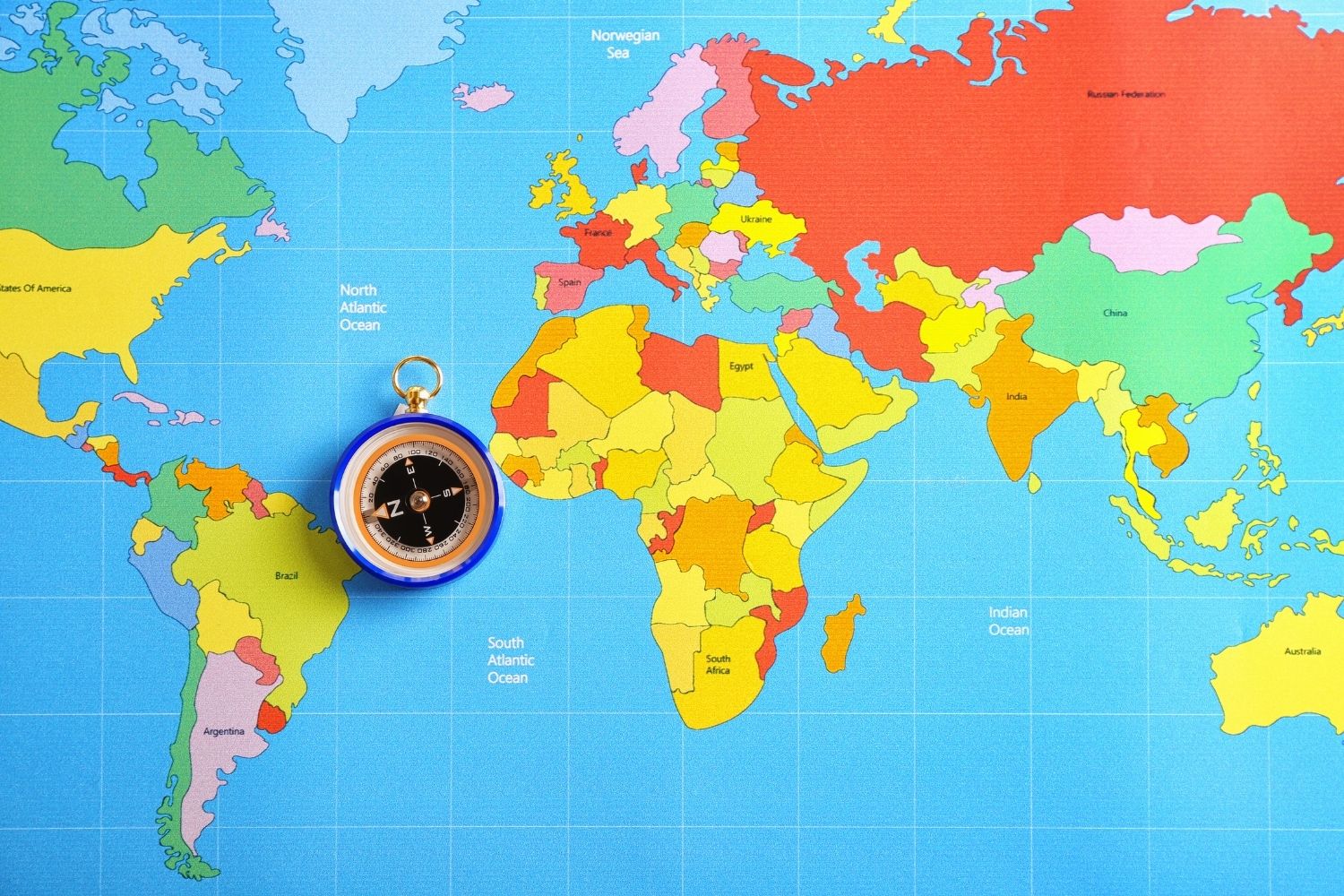Table of Contents
morocco on world map, Morocco is located in North Africa, bordered by the Atlantic Ocean to the west, the Mediterranean Sea to the north, Algeria to the east and southeast, and the Western Sahara to the south. It’s strategically positioned at the crossroads of Africa and Europe, just across the Strait of Gibraltar from Spain. This location has made Morocco a significant cultural, economic, and historical bridge between continents.
Geography of Morocco
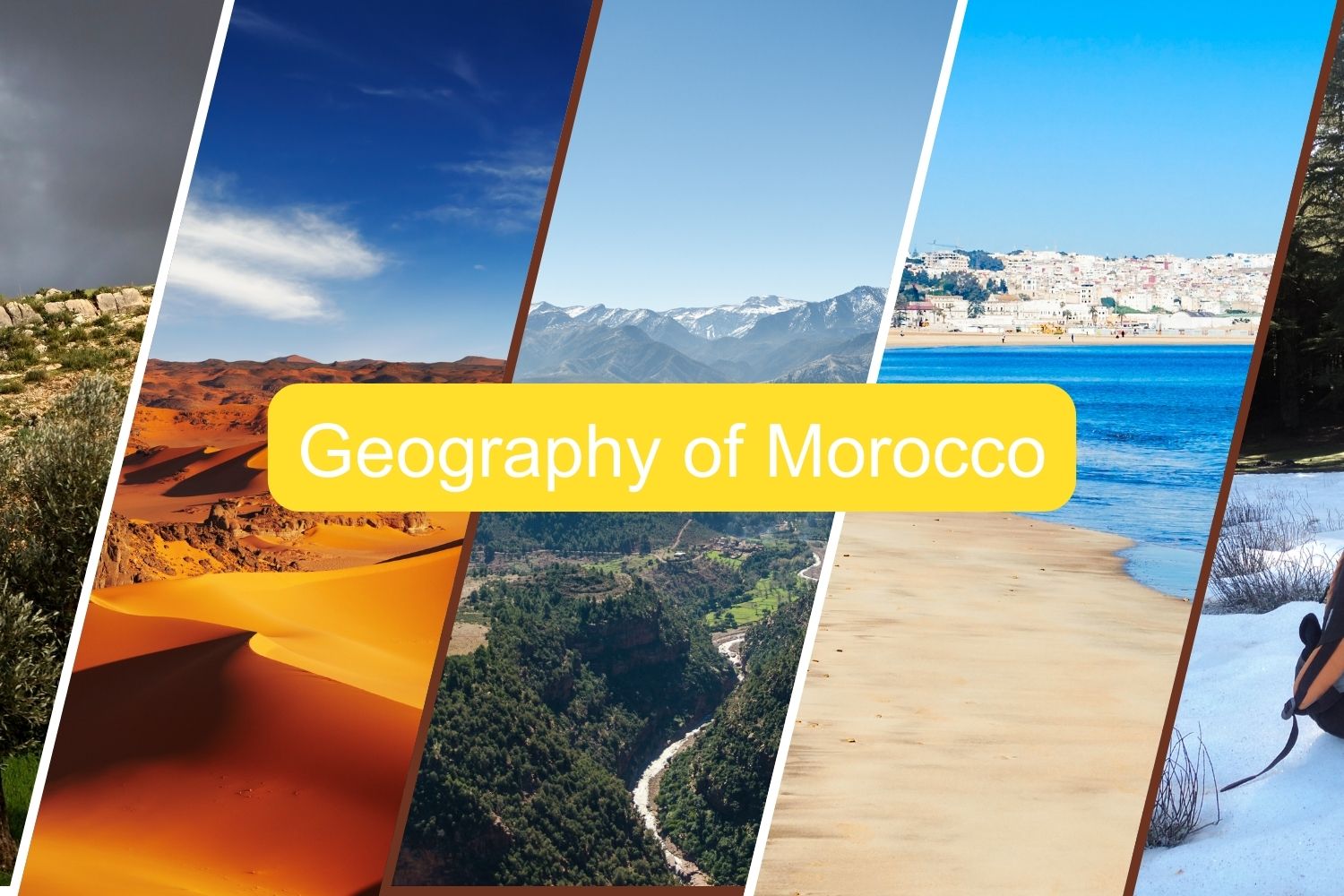
Morocco is like a treasure chest of nature’s wonders, packed with an amazing variety of landscapes and climates that make it stand out on the map of North Africa. Imagine it nestled between the vast Atlantic Ocean on one side and the sparkling Mediterranean Sea on the other, with Algeria peeking from the east and the mysterious stretches of the Western Sahara to the south. This special spot on the globe has made Morocco a meeting point of different cultures and vibes throughout history.
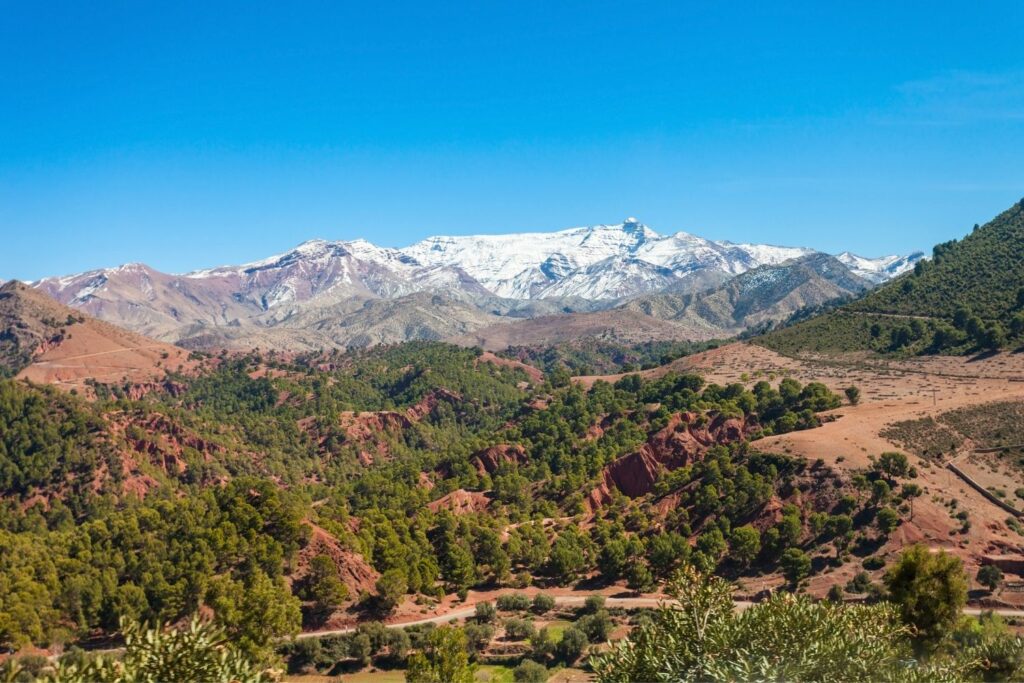
Mountain Ranges: Picture the majestic Atlas Mountains slicing through the heart of Morocco, creating a natural divide between the lush, fertile plains in the north and the sweeping expanse of the Sahara Desert to the south. Now, turn your gaze northwards to find the Rif Mountains hugging the country’s edge.
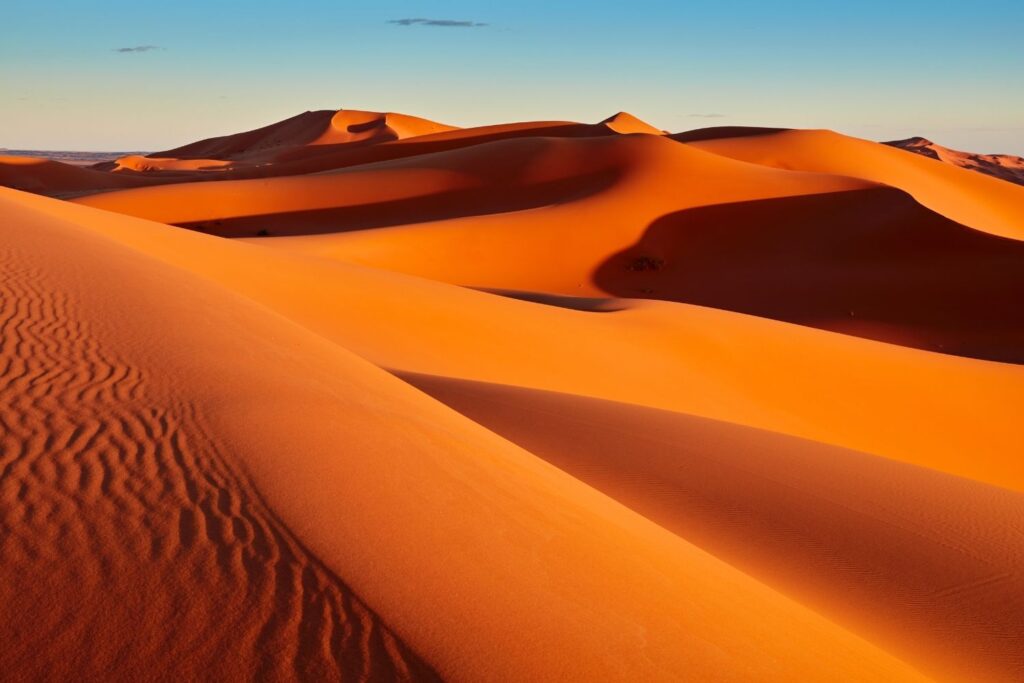
Sahara Desert: Venture south and east, and you’ll step into another world—the Sahara Desert. It’s not just about endless sands; expect to see dramatic rocky landscapes, valleys that bloom into oases, and dunes that paint the horizon.
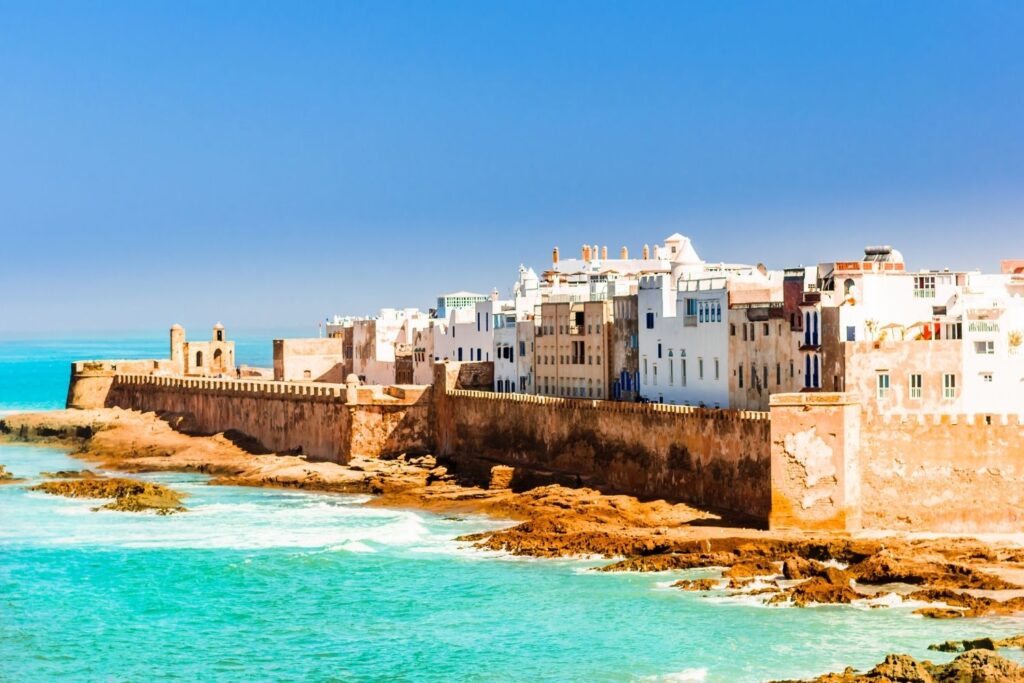
Coastlines: Morocco’s shores are a feast for the eyes, with the Atlantic Ocean rolling onto long, sandy beaches dotted with historic gems like Casablanca and Essaouira. Meanwhile, the Mediterranean side of Morocco tells a different tale, with rugged cliffs and tranquil lagoons framing the sea.
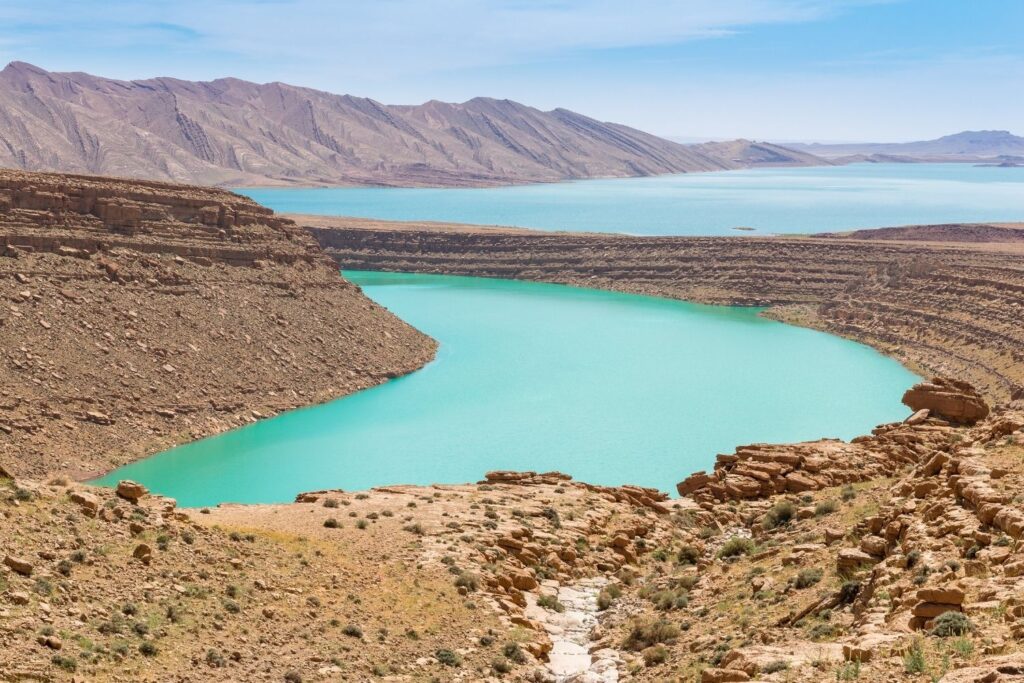
Rivers and Lakes: The country’s veins are its rivers, like the Draa, Morocco’s longest river, which carves its way through the desert. The Moulouya and the Oum Er-Rbia are other lifelines, nourishing the land on their journey to the Mediterranean and Atlantic, respectively. Lakes here might be rarer sightings, but the ones that do exist are cradles of biodiversity, changing with the seasons but always offering something unique.
History of Morocco
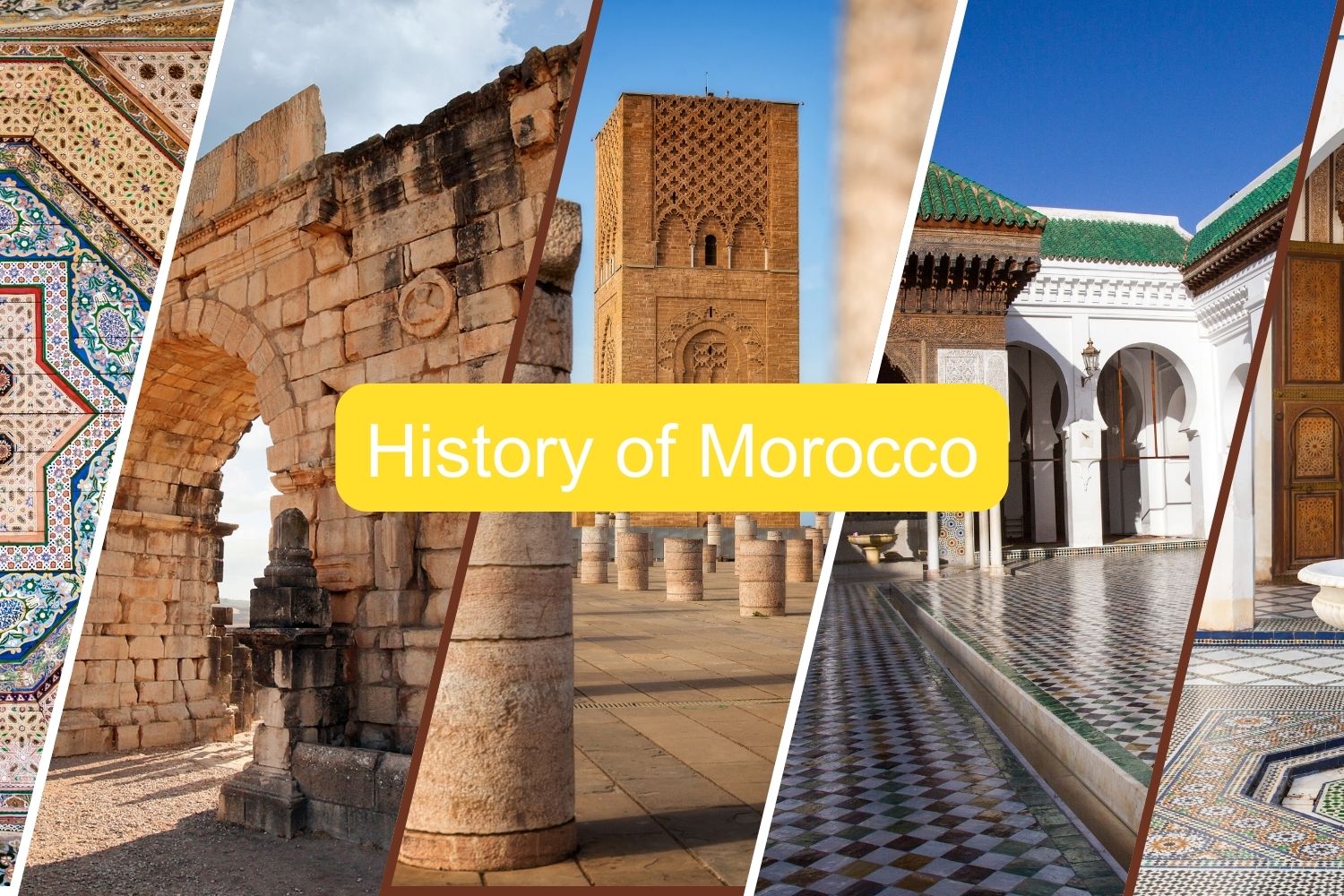
Morocco is a country steeped in history, rich with a vibrant culture that has stood the test of time. This culture, though deeply rooted in ancient traditions, is a colorful mosaic, reflecting influences from various other ancient civilizations. For those intrigued by the origins, evolution, and unique blend of influences that shape Morocco’s distinct culture, a journey through our concise overview of Moroccan history promises to be a fascinating read.
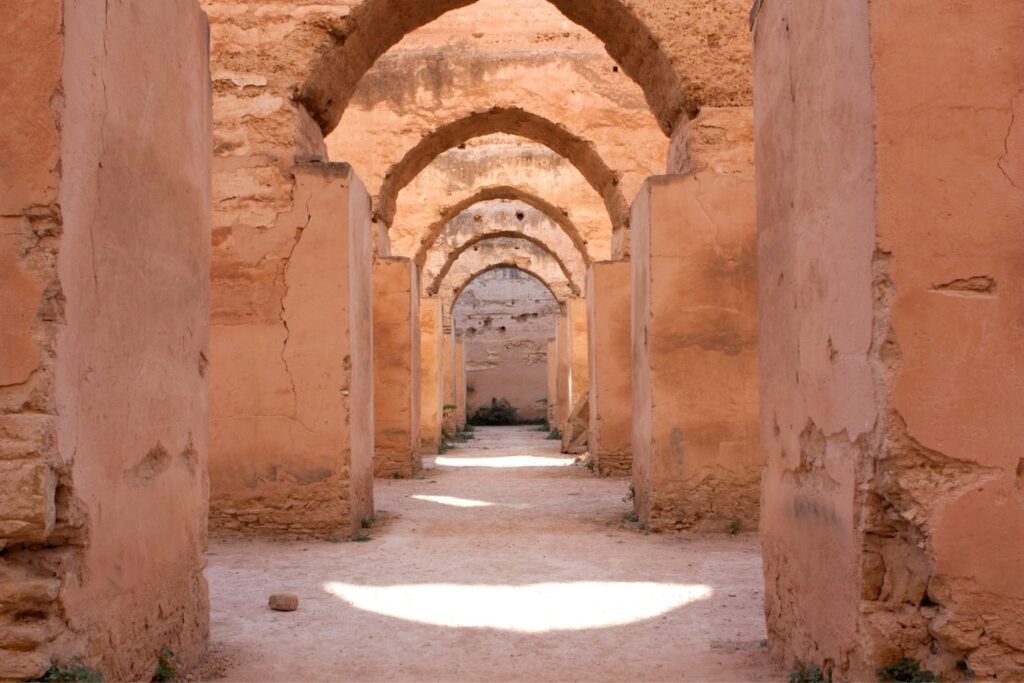
Morocco’s early history is marked by the Berber tribes, the original inhabitants, who lived in large familial groups without a centralized government. Leadership and laws varied significantly from one tribe to another, leading to a fragmented social structure. This disunity made Morocco vulnerable to invasions, starting with the Phoenicians in the 12th century B.C., who established coastal settlements. Over the centuries, control shifted hands from the Carthaginians to the Romans, and eventually to the Arabs, amidst ongoing conflict and instability. However, a period of stability and cultural flourishing emerged under Ahmed I al-Mansur’s reign in the late 16th century, enriched by the influx of Jews and Moors from Spain, who brought their rich cultures and arts to Morocco.
The 15th century saw Morocco embroiled in conflicts with the Spanish and Portuguese, with the latter controlling the Port of Cueta until the Moroccans reclaimed it in the late 16th century. This victory sparked a broader effort to regain control over coastal towns, achieving significant success by 1700. However, the 20th century brought new challenges with France and Spain dividing Morocco between them in 1904, leading to a period of colonial rule. The quest for independence gained momentum in the mid-20th century, culminating in Sultan Mohammed V’s transformation into King Mohammed V and Morocco’s eventual independence, with Spain relinquishing most of its territories.
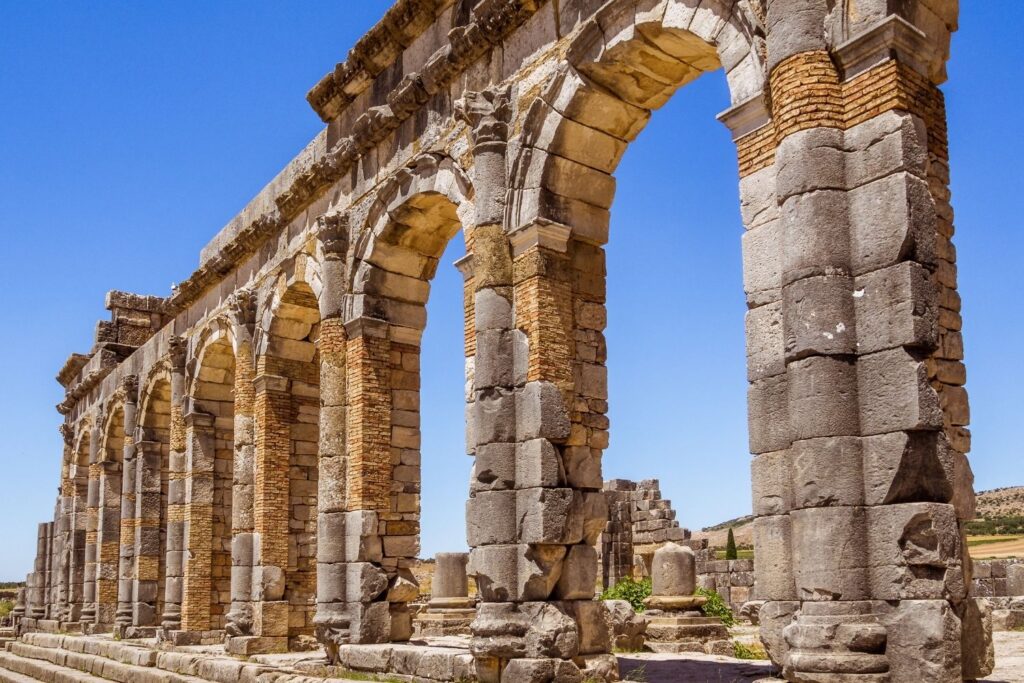
The latter part of the 20th century was dominated by King Hassan’s efforts to reclaim the Sahara, a quest met with international resistance and complex negotiations, resulting in a divided control over the region. The death of King Hassan in 1999 marked the end of a long and transformative reign, passing the throne to Crown Prince Sidi Mohammed, who continues the Alawite Dynasty’s legacy. Morocco’s history is a testament to its resilience and the rich tapestry of cultures that have shaped its identity, from its Berber roots to its contemporary status as a modern kingdom.
People and Culture of Morocco
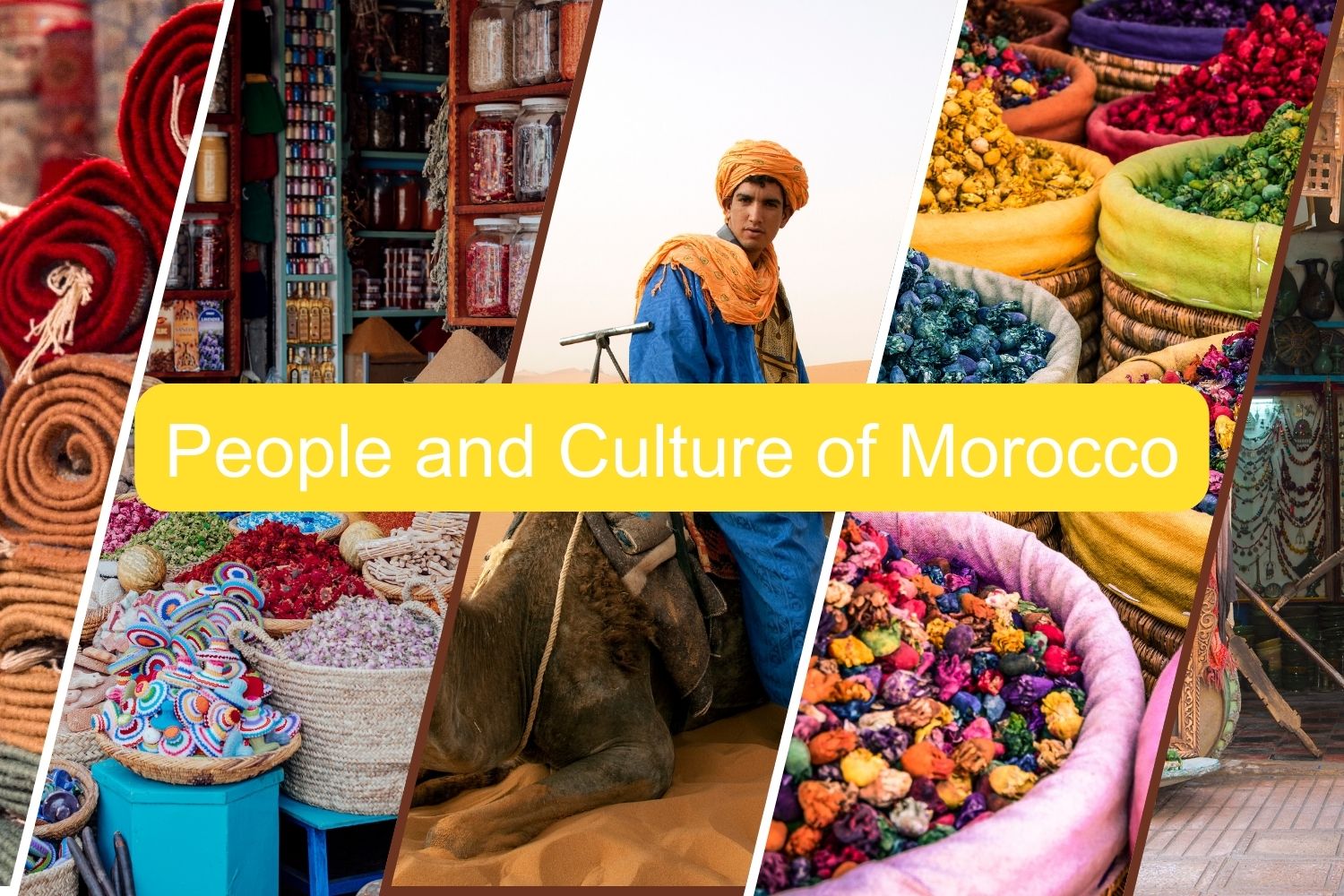
Morocco, with its population soaring beyond 36 million, is a cultural jewel that merges the vibrant hues of North Africa, the Middle East, and Europe into an exquisite mosaic unique to this part of the world. This blend has fostered a society rich in diversity, embodying a spectrum of identities that contribute to its distinct character.
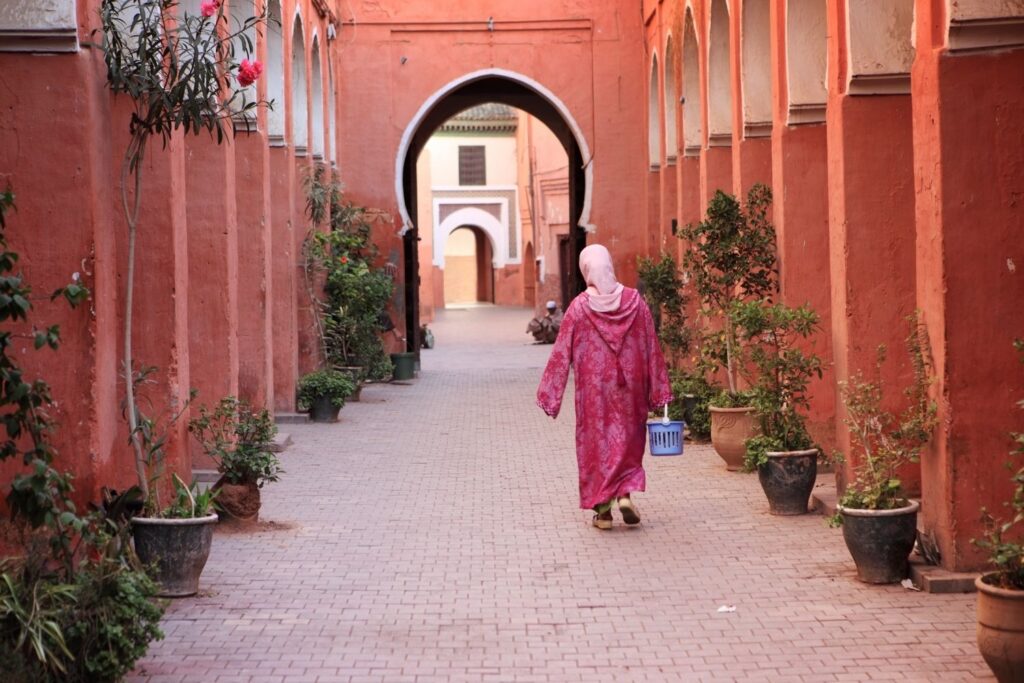
The cultural landscape of Morocco is a fascinating realm of complexity and subtlety, distinguishing it as one of the most intriguing and perhaps misunderstood countries I’ve had the pleasure to explore. Often veiled by stereotypes, the true essence of Morocco can be lost to those who view it through a narrow lens. It’s essential to peel away these layers with an open heart and mind, embracing the rich tapestry of Moroccan life in all its diversity.
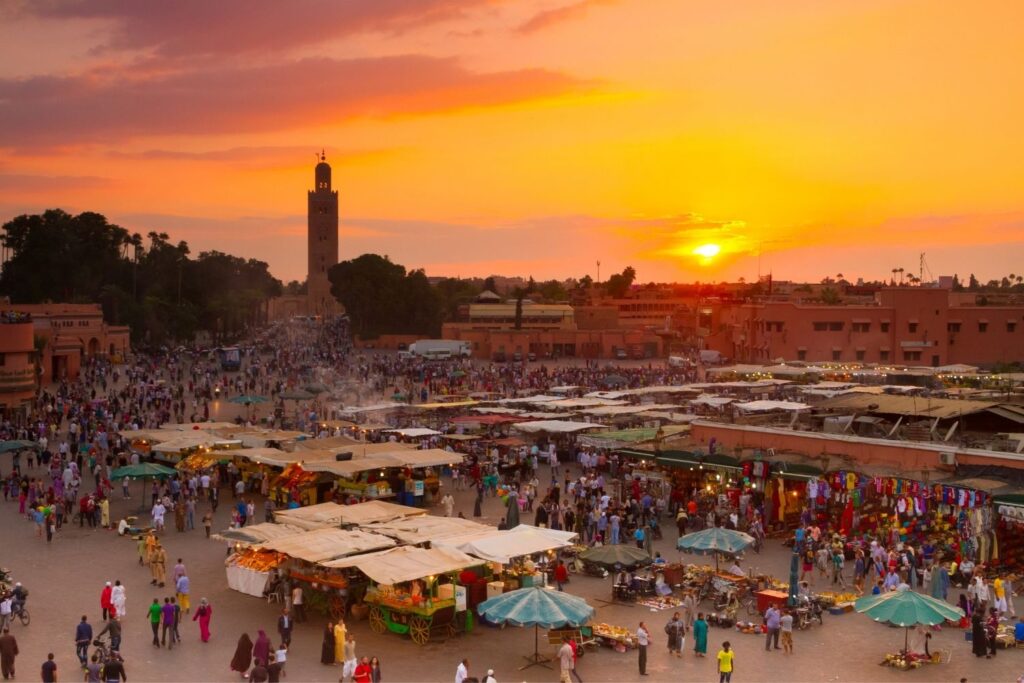
For travelers eager to immerse themselves in Moroccan culture, this guide serves as a portal to the soul of the country. Embracing Moroccan hospitality opens up a world of unforgettable experiences, inviting you on a journey that promises to enchant and inspire. Here, every encounter and every moment is an invitation to delve deeper into the heart of Morocco’s vibrant culture.
Demographics of Morocco (2021)
- Population: 37.08 million
Languages
- Official: Arabic and Berber
- Widely Spoken: Besides Arabic and Berber, French is prevalent. Spanish and English are also spoken.
Ethnic Groups
The majority are Berber, Arab, or of mixed heritage. Berbers, the original inhabitants, constitute a significant portion and are categorized into four main groups with distinct Berber dialects: the Rif, Middle Atlas, High Atlas, and southern nomads. Morocco also hosts West African Haratin and Gnawa communities, descendants of former slaves, and a smaller Jewish community, which has diminished since the mid-20th century.
Religion
Islam is the predominant religion, with most Moroccans being Sunni Muslims of the Maliki school. Minorities include Christians, and Jews.
National Holidays
- January 1: New Year’s Day
- January 11: Independence Manifesto Day
- May 1: Labour Day
- July 30: Throne Day (principal national holiday)
- August 14: Oued Eddahab Allegiance Day
- August 20: Revolution of the King and the People Anniversary
- August 21: Youth Day
- November 6: Green March Day
- November 18: Independence Day
Religious Holidays (Dates vary)
- Al-Hijra: Islamic New Year
- Ramadan: Followed by Eid al-Fitr to mark its end
- Eid al-Adha: Celebrating Abraham’s sacrifice
- Eid al-Mouloud: Prophet Muhammad’s birthday
- Ashura: Commemorating Hussein’s martyrdom and honoring the deceased
Climate and Weather of Morocco
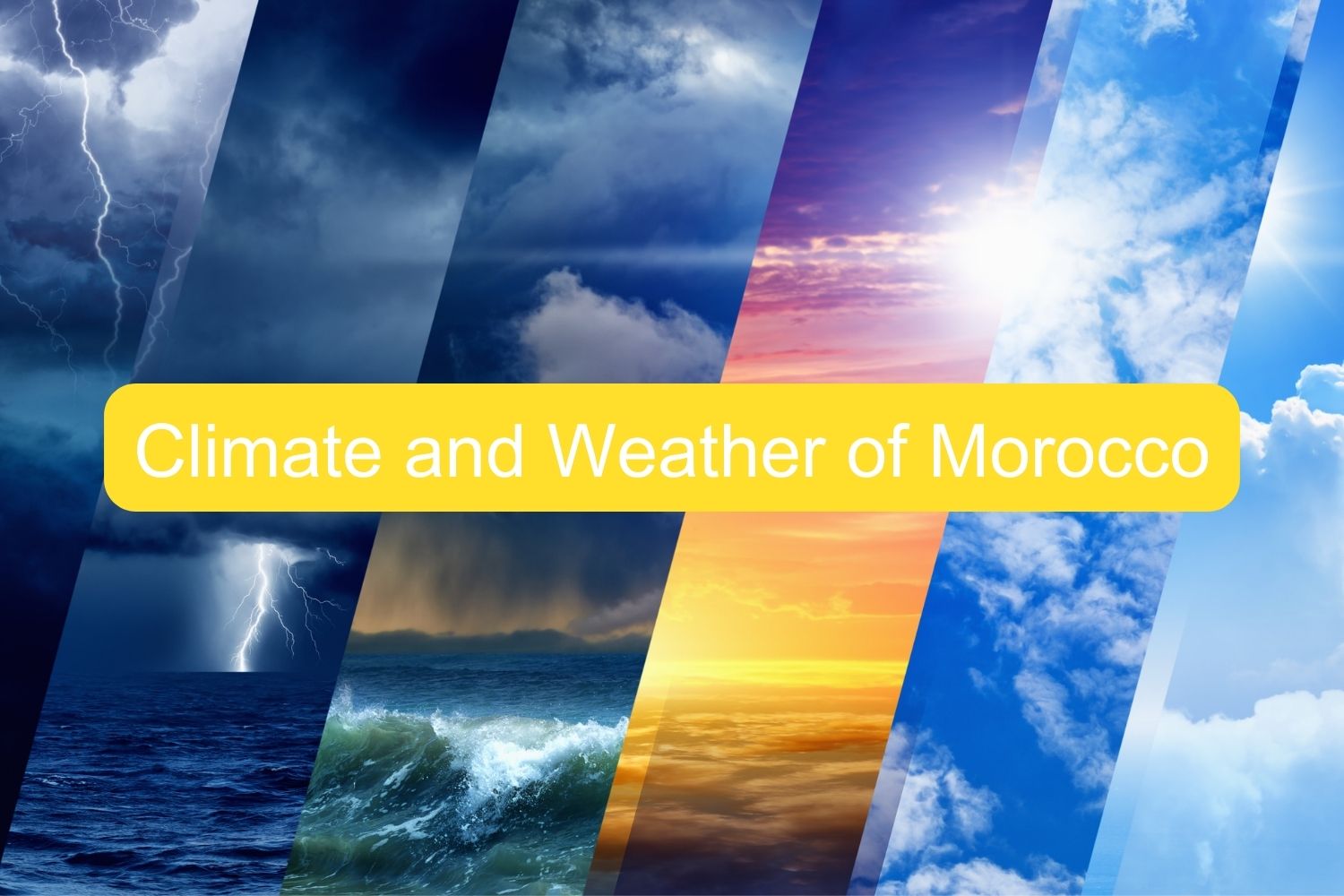
Morocco enjoys a more temperate climate than its North African neighbors, thanks in large part to the cooling influence of the Atlantic Ocean. Its varied terrain, which includes mountain ranges and different altitudes and latitudes, ensures that at any time of the year, there’s a spot in Morocco where the weather is just right.
The country’s climate offers a wide range, from the snowy peaks of its mountains to the sweltering heat of the desert. While summer in the interior can bring soaring temperatures, certain mountainous areas might be blanketed in snow during winter. Despite the warmth of the daytime, nights can cool off considerably, especially in winter months. Although Morocco is predominantly sunny, it’s not uncommon to experience sudden rain showers or even intense downpours, adding to the country’s climatic diversity.
Secure Your Adventure: Book Now for the Ultimate Moroccan Tour!
Book now and start the best tour with us! Discover the wonders of Morocco with our expertly crafted itineraries, tailored to provide an unforgettable experience. From breathtaking landscapes to rich cultural heritage, our tours offer the perfect blend of adventure and relaxation. Don’t wait – secure your spot today and embark on the journey of a lifetime!
